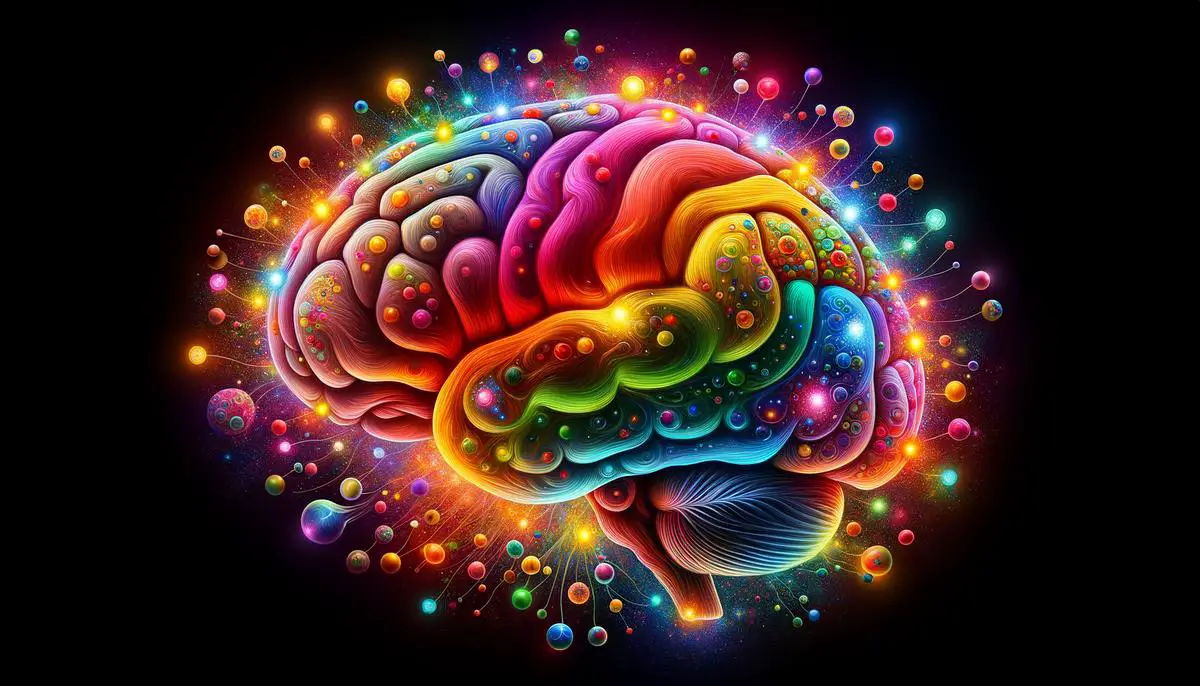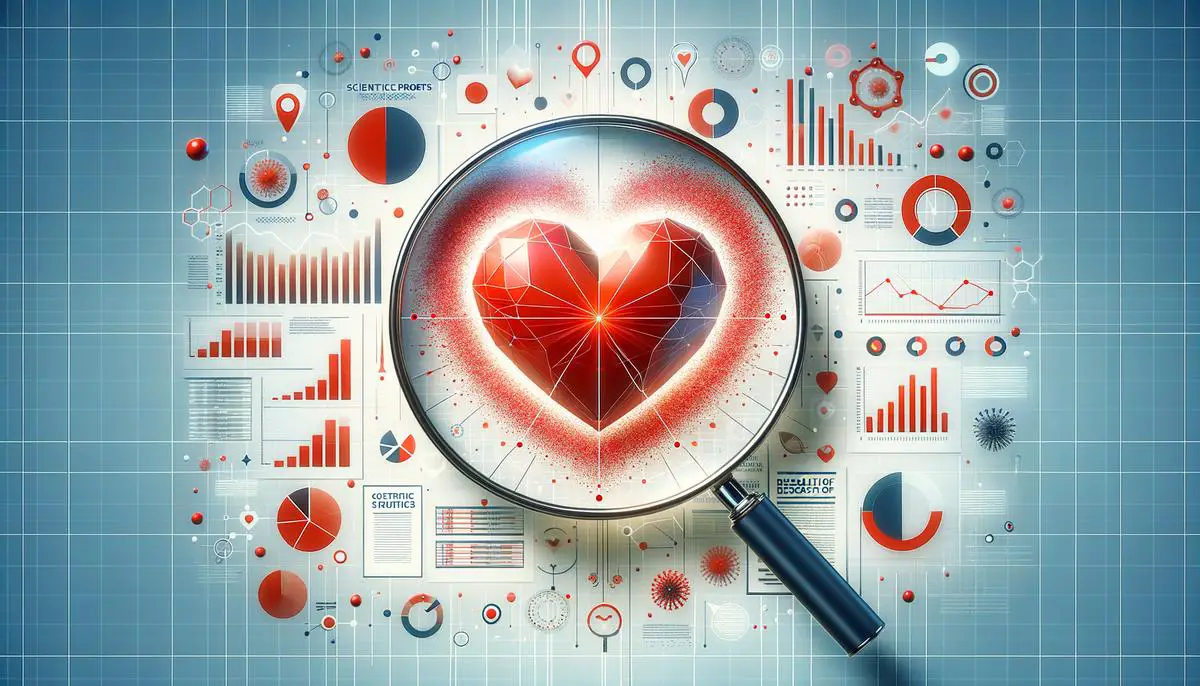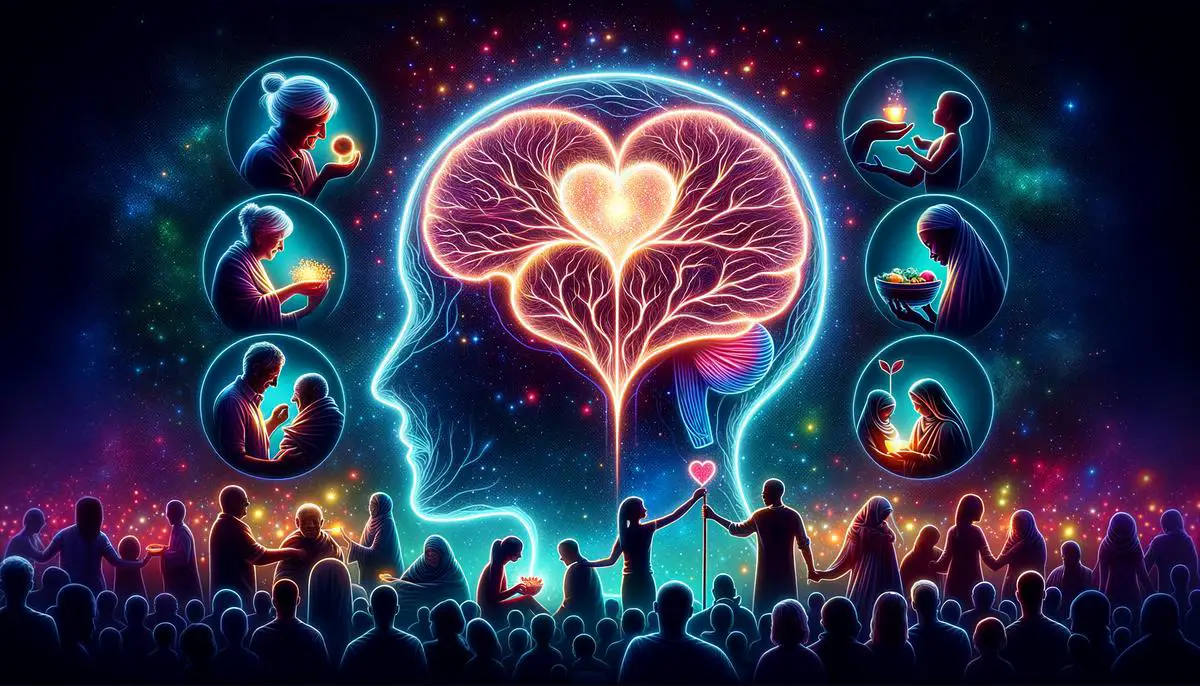1. Die Chemie des Glücks
When we do something nice for someone else, our brains reward us with a carnival of feel-good chemicals. Endorphins, serotonin, and dopamine all play a role in this happiness boost. Essentially, when we make others happy, our bodies flip on the 'feel great' switch, making it a win-win for all involved.
Remember that time you helped an elderly neighbor with her groceries and felt like a superhero afterward? That wasn't just your ego puffing up. Your body was under the spell of dopamine, the 'reward chemical' that gives us that glorious rush of joy when we accomplish something – like checkmating life's gloominess by being kind.
And let's not forget about oxytocin, the 'cuddle hormone' that flows when we bond socially. Whether it's hugging a friend or just chatting at the water cooler, these actions socialize our brain for joy, all while knitting us closer to our community fabric.
So the next time you feel the pull to scroll aimlessly or binge-watch another series, maybe shoot a text or do a small kindness instead. Your brain—and probably someone else's—will thank you for it. Get out there and spread some cheer; it's chemically good for you!

2. Psychologische Vorteile von altruistischem Verhalten
Helping others isn't just a nice deed—it's an upgrade to your self-esteem! Every time you toss a lifeline, whether it's solving a buddy's tech nightmare or donating books to the local library, you're not just spreading joy, you're basically strutting around in your best psychological attire. By showing acts of generosity, you step outside your own world of worries and take a vacation from personal issues, cruising on feelings of belonging and importance.
This gets even more interesting: engaging in selfless acts tricks our mind in the best possible way. When we help others without expecting a giant neon sign of gratitude, our brain interprets these actions as evidence that we matter. Our mind dances to this tune, doping us up with great vibes and cuddling our social network into a more tightly knit squad of happiness.
Feel a little left out lately or riding solo in Struggletown? Throw a 'kindness party'! Share a joke with the lonely person at work, or lend your green-thumbed expertise to a neighbor combating plant warfare in her backyard garden. This isn't just about cultivating plants or a robust social circle—it's farming for your mental health, planting seeds that'll bloom into a lush garden of self-respect.
Whether it's pulling someone out of a tech tangle or providing comfort with your homemade cookies during college finals, flinging kindness around feels like turning up to life's party with the ultimate feel-good playlist. So next time you're thinking of cocooning inside, remember: a small gesture might spin the turntables for both your social vibe and self-esteem.

3. Studienfälle zum Glück durch Helfen
Science proves that doling out generous servings of kindness actually cooks up a buffet of happiness for ourselves.
Researchers at institutions like Loma Linda University have found that folks skating towards unhappier days could practically flip their frowns upside down by helping others.1 According to these brainy bunches, shifting from "me-time" to "thee-time" is like boosting your brain's core processor. Altruism isn't just a fancy word; it's your ticket to stress reduction and spiked levels of life satisfaction.
Let's dive into the details:
- Case Study Shuffle: Researchers looked into the mirror of altruism and found that people could improve their mood by helping others.2 If giving out free cookies at the park isn't your plan B after a bad day, you might be living life wrong.
- Happy Hormone Gala: Not only do actions like volunteering or assisting a stranded driver tune your emotional guitar to an optimistic melody, but they also toss confetti all over your hormonal pathways. That's serotonin and oxytocin doing the "Electric Slide" in your brain.3
- Psych Buffet: Studies indicate that altruistic acts replenish those college nights spent memorizing things you'll never use in real life. Helping others actually helps thicken your cortex, which is like upgrading your brain's wardrobe.4
Taking a peek into this science makes it clear: acting like a goody-two-shoes throws a party in your brain's penthouse. And who doesn't love a good penthouse party, especially for your very own neurons? Next time you're feeling low or stressed, you have the perfect excuse to go altruism-crazy. Paint the town red with good deeds and watch as the happiness ticker tape parades down Main Street of your mindset.
So, while you're expanding your plant empire or whipping up batches of neighborhood nectar, remember: the real growth formula is doling out heaps of kindness. The science nods in agreement – helping others isn't just nice; it's necessary bling for your inner Buddha.

4. Gemeinschaft und Wohlbefinden
Community engagement means way more than having the nicest lawn on the block (although that's pretty great for the 'gram).
Dive into your community meetings like you're a celebrity guest—only instead of scarfing cake, you're sniffing out ways to spread joy. You become the Gandalf of your hamlet, waving your wise tips and hellos, sowing seeds not just in pots but in hearts.
When you've got a stake in your community, there's this magical throb in the chest area that says, "Hey, I'm useful!" The feeling amplifies if you're elbow-deep in a fundraiser or spatula-handed at a bake sale, fighting windy tag sales and icing flops.
Whether you're hashtagging it out in neighborhood cleanups or dancing awkwardly in that weirdly enjoyable yearly street fair, you're tessellating tightly into the community mosaic. The secret sauce is the gratifying sense of making a mic-dropping entrance every day, but instead of mics, you drop watering cans and best homebrewed imp cabinetworks which make even the wary neighbor nod in wholesome respect.
Feel at odds with the world or ticked by politics? Threading the civic engagement needle can sew up patches of life that seem worn. It gives you a montage where every action you take scales onto this humongous scoreboard—spoiler: the score always tallies up to beneficial.
While community involvement comparisons are rife, this isn't Stardew Valley competitive mode with too real tasks. Each tiny victory, each patch adorned on this social quilt brings fulfillment that can't be barcoded.
So transform that existential dread into sassy helpership. Whip out those rusty Spanish skills to help at local translation drives or bait your resume with skills seasoned by real human charges—not just pixels.
Remember: drawing that community cloak around you isn't trimming away your individuality, it's nurturing it framed by altruistic love! Get tangled up in the action because every patio needs a cooler of balloons sometimes. Tie your happiness balloons and float around making merry—it's garden party season all year 'round in community engagement land! 🎈🌻

5. Langfristige Effekte von Helfen
Consistency in altruism doesn't just spike your mood temporarily; it locks that happiness into a steady groove that could outlast grandma's famous lasagna recipe. Regular good-deed-dishing isn't just garnish on the salad of life—it can fundamentally rewire the happy circuits in your brain to a permanent high buzz!
Let's see what's up:
- Neuronal Crafts Fair: Engaging regularly in altruism beautifies your brain structure no less than what crocheted seat covers do to old bar stools. It strengthens those neuro pathways you never thought you'd use after high school.5 More so, this frequent feel-good choreography gets so deeply etched in your cerebrum, that over time, it becomes as instinctual as recoiling from horror movie jump scares.
- Stress Slayers Unite: Need a proven non-pharmaceutical prescription for reducing hypertension and the existential edginess of life? Sure, kale might help, but a hearty schedule of being utterly nice is where it's really at. It chills out your cortisol (that pesky stress-inducing hormone) so sneakily you won't even notice until tackling daily challenges starts to feel like skipping rather than sprinting on life's treadmill.6
- Fountain of Youthful Feels: Evidence suggests that those who slot into altruistic acts wear their years with a spryness you usually attribute to matinee idols sporting new hair jobs. Not saying helping your neighbor wrangle her shopping will ditch the need for concealer, but you'll shine!7
- Social Butterfly or Networking Jackhammer?: The social tetherballs of helping tether you securely to not just your current social circle but bloom gardens where personal networks thrive. Extending a hand has the fab side effect of yanking people towards your natural charm orbit. Who knew your LinkedIn could pulse with gratitude than requests from high school alumni!
- Existential Karma Chocolate Box: Humanity makes rewarding generosity pretty straightforward—they praise, they love, they attach pleased vibes, perchance threading those into the Grand Tapestry of Life. You'd be walking through streets pretty smug knowing every handshake has tipped universal balance scales slightly towards satiating fairy bossom-like cheerfulness.
Continuous acts of selflessness concoct an inner vintage reserve of happiness. Aging in altruism may just normalize the euphoria once reserved for episodic festive engagements into an everyday, swaggering banquet. Including a reworked dose of joy hormones now and then? Trust me; your blood will be sparkling like cider! Kryptonite to broodiness if ever there was one!

- Post SG, Neimark NJ. The neural basis of human benevolence. Scientific American. 2007;297(2):60-65.
- Otake K, Shimai S, Tanaka-Matsumi J, Otsui K, Fredrickson BL. Happy people become happier through kindness: a counting kindnesses intervention. J Happiness Stud. 2006;7(3):361-375.
- Zak PJ. The neurobiology of trust. Sci Am. 2008;298(6):88-95.
- Moll J, Krueger F, Zahn R, Pardini M, de Oliveira-Souza R, Grafman J. Human fronto-mesolimbic networks guide decisions about charitable donation. Proc Natl Acad Sci U S A. 2006;103(42):15623-15628.
- Luks A. Helper's high. Psychol Today. 1988;22(10):39-42.
- Brown SL, Nesse RM, Vinokur AD, Smith DM. Providing social support may be more beneficial than receiving it: results from a prospective study of mortality. Psychol Sci. 2003;14(4):320-327.
- Harris AH, Thoresen CE. Volunteering is associated with delayed mortality in older people: analysis of the longitudinal study of aging. J Health Psychol. 2005;10(6):739-752.
